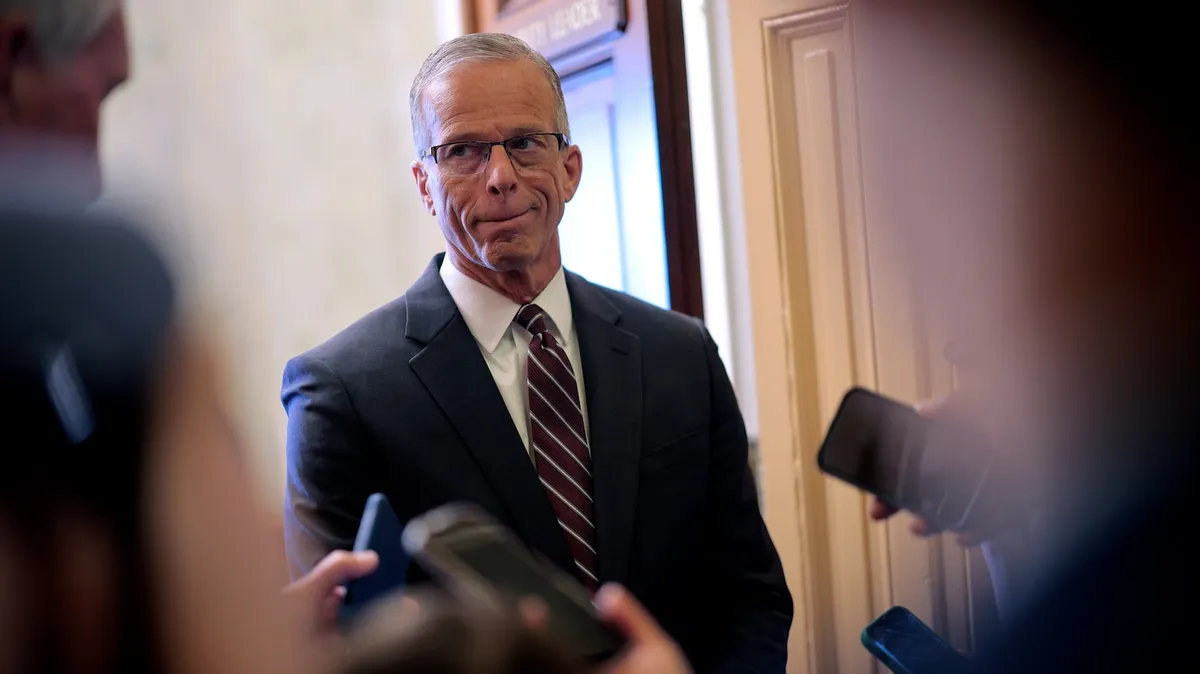
For several weeks, the U.S. Senate has faced challenges in advancing a short-term funding bill aimed at reopening the government. Despite making 13 attempts, these efforts have consistently fallen short. According to Senate Majority Leader John Thune, the primary issue with the current funding proposal is its inadequate duration. Thune noted that if the bill were to pass in the coming days, it would not sufficiently address the government's funding needs for an extended period.
Thune emphasized that the funding deadline specified in the House-passed bill is not viable. If the Senate had approved this funding bill prior to the government shutdown, it would have extended funding for seven weeks, lasting until November 21. This would have provided congressional appropriators nearly two months to finalize full-year funding bills before facing another funding deadline. However, as of November 3, the once-promising seven-week window has now been drastically reduced to just two and a half weeks.
Thune stated that the current November 21 funding deadline is insufficient for lawmakers to effectively work on full-year appropriations, potentially leading to another shutdown. He indicated that a new strategy for government funding would require a revision of this date. "That date is lost," Thune remarked, highlighting the urgency of establishing a new timeline. He expressed willingness to consider various options for extending the funding period, even suggesting a shift to a deadline that could keep the government operational until early 2026.
The Senate has several potential approaches to modify the date within the funding bill, provided it gains the necessary support from Democrats. Options include amending the existing House bill or drafting an entirely new one. However, Thune pointed out that any revised funding bill would still require the House to reconvene for a vote, meaning that Speaker Mike Johnson might need to call the House back into session after weeks of recess if the Senate moves forward.
The path out of the ongoing government shutdown remains unclear. Democrats are insisting that negotiations on health care must occur for the government to receive necessary funding. Despite a weekend of discussions among some members, Thune expressed a cautious optimism, suggesting that there may be an "off-ramp" on the horizon. "Based on sort of my gut on how these things operate, I think we're getting close to an off-ramp here," he stated. However, he acknowledged the unique nature of this shutdown and the shifting dynamics at play.
Thune also noted that the offers from Republicans to Democrats have not significantly changed, remaining focused on procedural matters rather than addressing the health care issues that Democrats are advocating for. As such, it remains uncertain whether these proposals will be sufficient to secure the votes needed to advance the funding bill and ultimately reopen the government.